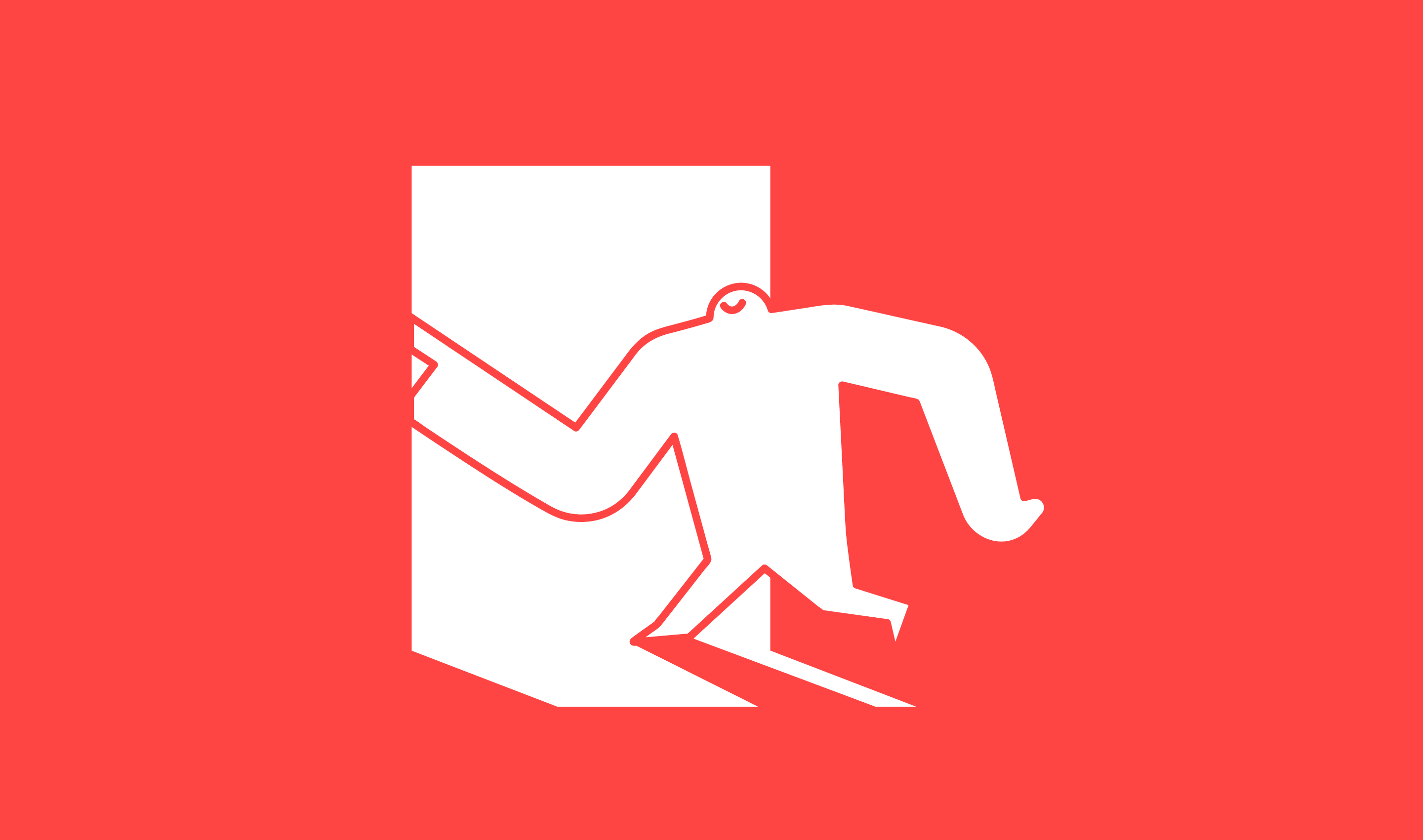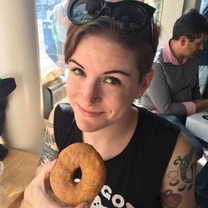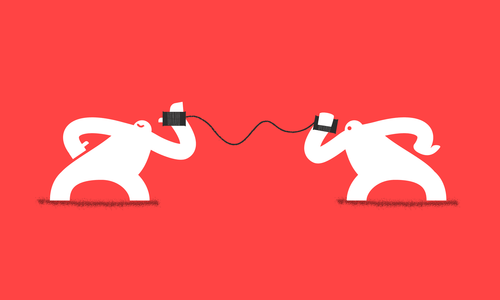
On this very special episode of Yeti Village, Kelly Albrecht and Alex Noonan talk about exit interviews with our podcast’s former host, Susie Howard.
You can listen to this episode of Yeti Village below, or by searching for “Yeti Village” in Apple Podcasts or the podcast directory of your choice.
Transcript
Alex: Hi! I’m Alex Noonan and this is “Yeti Village,” a podcast by Last Call Media, where we interview people in and around the tech community.
Alex: On today’s very special episode of “Yeti Village,” Kelly Albrecht and I talk about exit interviews with our podcast’s former host Susie Howard, and she officially passes the Yeti torch onto us.
[music]
Susie: Welcome to the fourth episode of “Yeti Village.” Good news, we are back. Bad news—and also good news? [inaudible 00:00:40] I am going to be stepping down as host of this here podcast, and handing the reins to the very, very capable and amazing Kelly and Alex. Who are here today.
Kelly: Hello!
Susie: Thank you guys [crosstalk 00:00:56]. Being here [laughing 00:00:59].
Kelly: Yes!
Alex: Thank you for being here.
Kelly: Yes thank you. So I guess I will introduce myself. First time on the podcast, Kelly Albrecht, I work at Last Call Media, and excited to be doing this podcast and taking over for the great Susie Howard. We’ve met Alex in a previous episode, but Alex do you wanna jump on for a second?
Alex: Hello! I’m waving, you can’t see me but I’m doing it. As seen in… What was it, the first episode?
Susie: The very first.
Alex: Wow.
Susie: In the whole “Yeti Village” podcast.
Alex: Alright well, as seen in episode one of “Yeti Village,” here I am back again.
Susie: Yay!
Kelly: When I heard that Susie was moving on I was sad, cause it’s always been great to work with Susie, but when I heard what she was moving on to do, I was very excited and it made a lot of sense to me. I think it’s important to embrace change, and always try to change for the better and I thought that seemed like a really exciting thing that Susie was going to do next.
Kelly: The first thing that popped into my head was how, here we are, someone is making an exit for a great opportunity, and what do we do? I’m always thinking as a company, what do we do and we don’t really do exit interviews. So I thought it might be interesting to dig into that topic and see—is it important, are they valuable, why, who does them, why do they do them… should we be doing them? And I ran the idea by Susie as a common problem topic to talk about on the podcast and she thought, and she agreed to do it. And here we are.
Kelly: The first thing to think about is, why would a company want to do an exit interview, and I could speak to that. I think that a company would want to do an exit interview to try to get a sense from the person who’s leaving, hopefully some candid feedback on what could have been improved during their time there, what sort of things did they experience, what sort of insights could they give you before they leave, about what worked and what didn’t work. It’s your last chance to do that.
Kelly: Have either of you guys have any experience with companies doing exit interviews in your previous places?
Susie: Yeah, I know me personally, I have worked for a lot of smaller companies so I actually haven’t had to do them very often, but one of the times I did have to do one was when I was working in higher education. It was a very, kind of the classic HR-y style exit interview where there is this person you didn’t even work with directly, they’re just in the HR department, having you fill out forms in a table in the corner of the HR office.
Susie: You know they’re just going to be filed away in a drawer somewhere, no one’s even going to look at them. I’ve never had a great experience with the exit interviews cause it always felt so forced and so cold. And very impersonal. And the questions are written from some template online that they found or something.
Kelly: Did you kind of feel like you were doing the company a favor that was giving the exit interview?
Susie: Yeah. Yeah, it felt like it was almost the final check box in my personnel file that they need to cross off.
Alex: That is—that’s exactly what my take on an exit interview was. It makes me think of a big corporation with an HR department, and they’re like, “Well we just gotta check these boxes, the final box is the exit interview,” and it doesn’t really matter how you do it or what actually happens in it, you just gotta check that box, and then we can all move on with our lives.
Susie: Yep.
Alex: I’ve never had an exit interview personally.
Kelly: Well Susie is a good—sounds like Susie, you’ve had one, so let’s dig into it. What did it seem like the company was trying to get out of the exit interview?
Susie: It was almost, it felt, probably because of all the policies in place, in higher ed, it seemed liked it was almost to cover their butts, a little bit. It was like, “Oh just in case, like if they weren’t happy, you know why they left.” Even if I was happy, it almost seemed like it didn’t matter, it was kind of like, “Well just for the future in case you know, anyone’s wondering why employees left, if they were disgruntled or unhappy.”
Susie: It really felt like, I remember sitting at the table, and she just went back to what she was doing. It was a very, it was almost like when you used to take the MCAS and he’s like, “On a scale of one to five… how happy are you with your supervisors?”
Kelly: One last chance to get a bad grade.
Susie: Yeah and then you hand it to them and it feels like when you’re taking a survey for CVS or something [crosstalk 00:07:12] They’re like, “Is anyone even going to read this?”
Alex: Yeah. You’re like, “I hope I win the thousand dollars but, I’m probably not going to.”
Susie: Or you could just like, I could just sign like “Daffy Duck” and just have all these answers and they’d be like, “Okay Ms. Howard, thank you so much for your time. We wish you the best of luck.”
Kelly: So it didn’t feel like when you take that last final exam before the summer and you’re walking out of the school building? Or did it feel like that?
Susie: It felt a little bit like that although kind of a bummer, I think because of the… you would like a send off to be a happy one. I left under good circumstances so you almost want your last memory to be like, “That was great, it was so nice working with you, talk again soon!” And not kind of like a, “Give me the paperwork and be on your way.”
Kelly: Yeah.
Susie: And the end of the summer, the end of school year pre-summer is very happy time. And I feel like the exit interview being the last thing you do, is like… kind of a bummer.
Alex: Well that didn’t even, I mean it sounds like it was less of an interview and more of just a survey really, like I think of an exit interview as someone sitting down with you and actually talking to you like a human being and asking you those types of questions and getting that feedback. I think when you’re just filling out a form it takes on a very hopeless sort of feeling cause you, like you said, it feels like, well no one’s ever going to read this.
Susie: Yeah, exactly. And even—I think if you were to do an exit interview, you know, if you were to revamp it, and like you said, have it be more like an actual interview, which I’m sure some companies do, but it would almost be nice to talk about… the positives why you’re leaving. It’s not always going to be that case, where someone, you know I’m sure people leave under not-so-great circumstances, or unhappiness or anything.
Susie: But, in my experience a lot of people that have left companies I’ve been at, or ones I’ve left it’s more like to move on to a different opportunity. It feels more positive on my end, so it’d almost be nice to have that interview to discuss more about the role and if you are replacing someone in that role, it’s almost a way to improve the job description. Do you know what I mean? Kind of like that activity.
Kelly: Yeah, so I’m wondering if you, in the shoes of an employee who’s leaving an organization and you had… basically the exit interview would be that one last time you have an official meeting, potentially, with someone in the organization. As that person, what would be important for you to get out of that situation?
Susie: I would say kind of almost just a nice summary of your time there. What went well and what could of been improved. What you enjoyed about it. Any kind of advice you’d have moving forward.
Alex: So more like a retrospective.
Susie: Yeah. Yeah.
Kelly: Yeah so that’s something I’ve been thinking about, because we don’t do exit interviews at Last Call and I don’t think—we all communicate a lot and there’s not really been the feel for the need for one. But one thing that we do do a lot of is retrospectives on projects and on teams, and we really try have a lot of that real-time candid feedback and try to continuously improve at communicating about a lot of this stuff in real time. So it almost seems like it makes this kind of high-stakes final event, less relevant. If you don’t mind me asking Susie, is that your experience at Last Call?
Susie: I mean I really enjoyed how much we all—the amount of retrospectives that we had and the transparency that was involved. Being in a remote company, I feel like I’m sure other ones can fall into the, you check in once a week and have client meetings and calls, and it’s a lot of cold emailing and things like that. I feel like we did a really good job of constantly communicating and if there was a process that had an issue and could be improved it was kind of constantly talked about and iterated on, and I know our Company Days, everyone knows, where we all get together as a company in person, most of us, and discuss what we’re doing well and what we could improve and things coming down the pipeline.
Susie: Like, to your point, I feel like that did… almost made it so that when I didn’t have an exit interview, I didn’t think it was weird. I didn’t really think about it because I feel like it was so transparent. And… yeah! I was very happy.
Kelly: That’s awesome. I guess there are different ways to approach the exit interview and one of the ways you were talking about is that it felt like—and this is my perception of it, too, from when we used to do exit interviews it’s almost like that final checkbox, like, “Oh if I had a manual on how to appropriately run a company… The exit interview is one of those checkboxes at the end. So, don’t really know why, but we just need to do it,” and you look up some how-to’s online or something and you run your exit interview. And, well also, when you do it that way, when you try to do it like according to tradition, you’re probably doing other things according to tradition, like you have an employee file. And it’s just like, “Alright time for the exit interview! Time to get prepared!” and you pull out the file and have this final showdown, it just seems terrible.
Susie: Yeah exactly.
Kelly: So then as I was thinking about that I was also thinking about how if—I think, if I think about what… the way I want things to go, I want people to like where they work and to continuously improve and get better, but at the same time I think it’s important to embrace change and the things that make sense in one point of time aren’t always going to make sense at a later point in time. And if people are continuously improving and things are continuously changing, it’s going to happen that a different place is going to make sense for somebody.
Kelly: And if all those things come together, a good outcome is that that person is in a better place than they were previously, and if your company has been a part of that, then you’ve done a good job. And I think that’s kind of an ideal. And so if there were, I guess if there were anything that a company, in that case, situation, wanted to find out toward the end it would be, are our efforts contributing to that being the case. And so I guess that, if I had to think about, what would a company want to get, a company that’s approaching things that way, they would have one final thing they might be curious about but otherwise, hopefully, they’d cover all the other values of the exit interview along the way.
Susie: I think that is a really unique and kind of nice way to think about… I wish more companies would think about their employees that way, in kind of like—obviously you’re hoping that they like where they work and when they come to you that they’re bringing something to the team, and their experience they’ve had and their qualifications, but to kind of think it more, not just like a linear path. Especially my generation, it’s just, you know… you’re kind of trying to find yourself and where you want to be in your career and trying, always trying to constantly improve, and if you could have been at a company and taken away a really positive experience and added to your list of qualifications and ways to handle things and projects and ways to think about—I mean as a creative—ways to think about things creatively, especially like in the web space. I think more people should think about their employees that way, and as kind of the company… not only is the person lucky to work for the company, but that the company is lucky to have the very different kinds of people bringing very different experiences and I don’t know, just ways, to the company.
Kelly: This is just making something pop into my head that I’ve seen on LinkedIn a few times, it’s this meme, that is, the CFO says to the CEO, “What if we invest in our employees’ professional development and then they leave us,” and then in this meme the CEO responds with, “Well what if we don’t invest in their professional development and they stay?”
Susie: Yup. I love that one.
Kelly: So I guess it’s along those lines.
Alex: I was just thinking that, if the first time that a company is looking to the employee and asking them how they like working there is after the employee has left…
Kelly: Yeah. Right.
Alex: I think they have a problem [laughing 00:17:22]
Kelly: Yup. True.
Alex: And actually, I went to this training thing this week where there was a lot of… I was around a lot of other people that work in a lot of different companies, but a lot of like, insurance companies, and banks, and health care, and things like that. And some of the stories these people were telling about the problems that they have with leadership and upper management and things like that, and they’re like, “Well I can’t do this because my boss doesn’t like that,” and, you know, “Management only wants to hear the good stuff, we can’t go to them when we have problems. And then if we have problems it’s our fault,” and… blah blah blah blah blah.
Alex: And I was just [laugh 00:18:09] I didn’t say anything the whole time, cause I’m like, I have nothing to contribute to this conversation. Cause we just so, I feel like we so do not have that problem. So it made me feel very lucky to work here, but pretty also bad for most of the world.
Kelly: Yeah. Yeah. I definitely see that in some of the consulting engagements that I end up on, where there’s just layers and layers and layers of hierarchy and resentment and people afraid to be open and transparent and it’s really hard to undo that. It must almost be impossible in those cases to get some of that real feedback and communication about how things are going along the way so it’s almost like, the exit interview is the last ditch effort and I’m not sure if it gets anybody anything. Even at the end. …I’m not sure how to bring this to a close…
Alex: Well I want to hear, Susie how are things going?
Susie: They’re going really well. Honestly a big, a big reason why I, sadly—I have like, hunger pain, pain, like… sad pain, because I loved working at Last Call, and I loved working with everyone I worked with. But as a young-ish designer—I’m not almost thirty—
Alex: [laughing 00:19:41] It’s cool, me either.
Susie: Twenty-nine forever y’all! I left to accept, to go, return to my last company. When I had left earlier for my Last Call position, I was a senior graphic designer there, and they offered me the position of art director. It was a very big opportunity for a designer in general, but it was also really nice because I really enjoy working with, not just digital design, but I really enjoy the physical aspect of print and branding. And then there also is a lot of opportunity for styling furniture. I didn’t say, but it is a national furniture company, but I don’t know, I think at this point in my career it’s a really cool new challenge and more responsibility than I had previously at the company, and a little bit more autonomy, and it’s just been really cool thinking differently, spatially speaking, and I feel like it makes me a better designer when I go sit down at the computer and use those assets that I helped create in the studio, and helped art direct in the studio in different pieces of marketing collateral and digital assets.
Susie: So I’m already really happy with—no matter how long I stay here—I’m already really happy, as we were talking about earlier, as having this in my tool kit moving forward. I think it’s always gonna help me be a better designer and constantly try to change the way I think about design and how things interact with each other, and hierarchy, things like that. So I’ve been really happy. It’s really fun running around the studio trying to style things like you see in the magazines because it is really hard! You’re like, “Why does that look so good in that magazine?” And you’re like, “Oh because they have seventeen stacks of books on a coffee table.” I can’t tell you why that looks so good editorially but it does, so. I have been doing a lot of strategic book stacking. [laughing 00:22:09]
Alex: That sounds like an awesome thing to add to your resume. Strategic book stacker.
Susie: Strategic book stacker.
Kelly: Well it seems, I think it seems really fun too, in terms of, that’s almost that’s something we would almost never end up having to do at Last Call and I am sure there’s just dozens of those types of things to just almost get out there and to like—it almost must be like a design playground to arrange a space and capture it visually and so it sounds super exciting.
Susie: Yeah, I’ve been enjoying it. I have been enjoying it and hopefully, if someday I return to the “Yeti Village”… I will be a better designer, and a different person.
Kelly: I’ll just continuously improve and be ourselves and work together and just embrace the change that comes along with that. It feels good, you just got to go with it, you got to trust it, I think, it was great. It was definitely great working with you, and it’s not over, we will figure out a way to get you back as a guest and also, Susie is also the chair of the design track for NERD summit coming up in March, so we will continue working together on that.
Susie: That’s right you have not seen the last of me Kelly. [laughing 00:23:50]
Kelly: Fortunately, fortunately.
Susie: Well thank you guys so much, I am officially signing off as host of “Yeti Village” and I’m very excited to hear the new episodes coming out.
[music]
Alex: “Yeti Village” is produced by me, Alex Noonan. Today’s music is an original song by Last Call’s senior developer Ben. You can subscribe to “Yeti Village” on the Apple podcast app, SoundCloud, or your podcast service of choice. You can also drop us a line at lastcallmedia.com and tell us what topics you’d be interested to hear us explore for this podcast.



